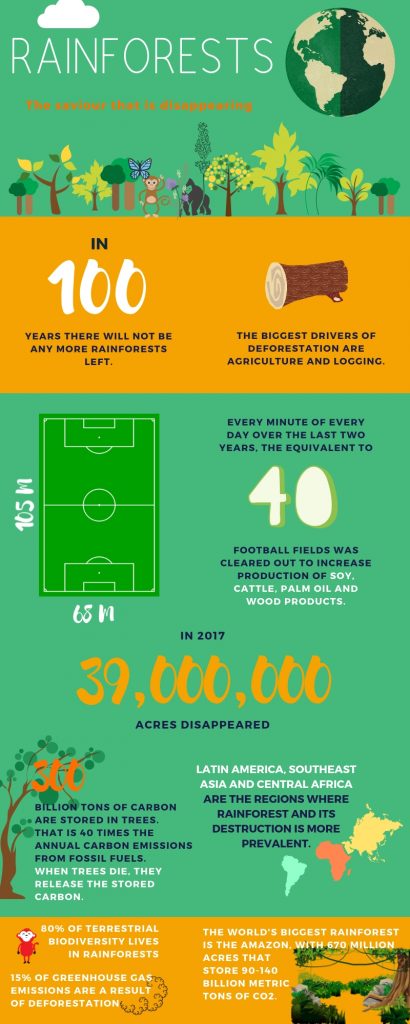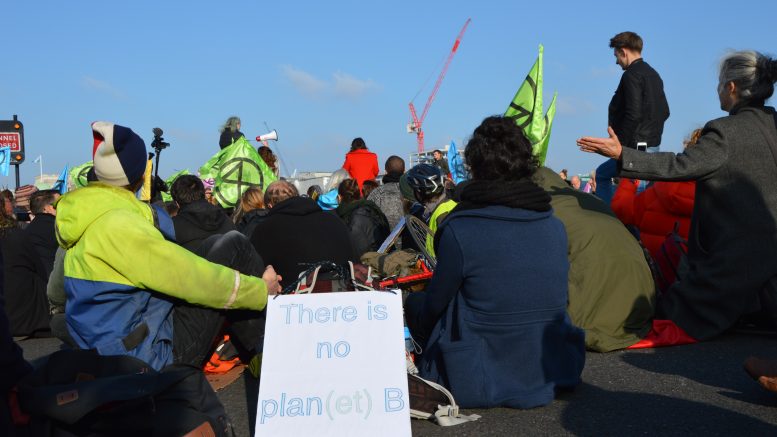
Protesters blocking Waterloo bridge on 17 November, 2018. Picture: Maria Campuzano
Governments are meeting in Katowice, Poland until the 14 December for the 24th Conference of the Parties (COP24), where they plan to put in practice what was agreed in Paris in 2015. It is ‘the most important global decision’ regarding climate change.
Almost 200 nations are set to meet to agree on ‘the Paris rulebook’, a set of global robust guidelines for implementation, and to ensure vulnerable countries get the support they need to reduce climate change. They are in a moment of reckoning, with this year set to be the fourth warmest on record, according to the World Meteorological Organization.
It also follows a report from the UN demonstrating a rise in global CO2 emissions and the recent IPCC report that called for urgent action in the next 12 years to limit warming to 1.5C.
Dear UN,
Let’s stop pretending greening neoliberal capitalism can save us from climate breakdown. We need heavily increased Big Business regulation, a circular/doughnut economy not driven by GDP but by human and planetary welfare, and living local. #TakeYourSeat #COP24
— Hannah Scott (@HannahScottyy) December 3, 2018
“We’re on a fast road to suffering unless we act now. People are already dying from the impacts of climate change. This is the harsh reality that leaders must confront at the COP24. They are the last generation of leaders who still have the time to act. They must put the Paris Agreement to work and ramp up action now. Only through fast, bold change can we alter the course of history,” said Greenpeace’s head of delegation at the COP24 Jens Mattias Clausen in a statement.
This urgency for accelerated action is echoed by other renowned attendees. Sir David Attenborough said in his address today: “Right now we are facing a man-made disaster of global scale. Our greatest threat in thousands of years: climate change. If we don’t take action, the collapse of our civilisations and the extinction of much of the natural world is on the horizon.” He is attending the conference as a representative of the world’s people.
Sir David Attenborough says that we’re facing a man-made disaster on a global scale. https://t.co/mnv5BLTo72 Via @ReutersTV #COP24 pic.twitter.com/pz3Pxz9Q1e
— Reuters (@Reuters) December 3, 2018
“The stakes are now higher than they have ever been. Governments across the world have completely failed to protect their citizens. Instead, they have pursued quick profit and big business. We need this to change,” said a spokesperson for Extinction Rebellion, the campaign group responsible for the London bridges blockade last month, to Voice of London.
The group will be present at the COP24 running workshops, giving talks and reaching out to other networks. They “want to ensure that the focus is not just on getting the technical Paris rulebook as robust as possible, but also that governments do not lose sight of the bigger picture”.
The time is now for bold and radical action on climate change. 🌍
World leaders must agree how to work together to make that happen at #COP24. 🤝
The pressure is on, it is very real, and every moment counts. ⏰ https://t.co/vvzPD8BKE9
— Caroline Lucas (@CarolineLucas) December 3, 2018
“Almost the entire world signed up to the Paris Agreement three years ago. That was a huge step, but it’s not enough just to say that you’re going to keep global temperature rises to 1.5ºC; you have to do it. That’s why this year’s COP is so important. We need the world to come together in Katowice to agree the rules of the Paris Agreement,” told Voice of London Gareth Redmond-King, Head of Climate Change at WWF.
“We also need a firm commitment that they will come back in 2020 with much more ambitious nationally determined contributions – climate actions that add up to 1.5ºC. Here in the UK – a wealthy, developed economy, and the birthplace of the industrial revolution – that means committing to getting our economy to net-zero well before 2050.”
The conference has received heavy criticism because of its location in Katowice, home to biggest coal company in the EU, and part of a strong coal region. It is a decision the Polish government stands by, sticking with the fuel and recently announcing that they plan to invest in a new coal mine in Silesia.
At the global #ClimateChange convention our host, Poland, greets us with a shrine of ACTUAL coal 🔥💨🇵🇱
This year the #UNFCCC event is sponsored by coal companies in a country that generates 80% of electricity from coal 🌑
An insult to everyone who cares about the planet #COP24 pic.twitter.com/ng7HuWIm1Y
— James Ellsmoor 🏝 (@jellsmoor) December 3, 2018
A Christian Aid report published ahead of the IPCC’s in October, also showed that London is one of the cities that, as a result of global warming, will become more vulnerable to storms and flooding. The city is already sinking mainly because of its geology, as the glaciers that once lifted up the south and weighed Scotland down have melted and altered the effect.
Additionally, as a consequence of sea level rises, the capital is now using the Thames Barrier, its primary flood defence, up to seven times a year, compared to the predicted annual use of two to three times when the barrier opened in 1984, according to the report.
Speaking to the Voice of London, Extinction Rebellion said: “Our negligence is destroying the planet. Our actions are causing droughts, floods and wildfires. If we carry on like this, billions more people will be displaced and millions more will die.”
[googlemaps https://www.google.com/maps/d/u/0/embed?mid=1cGdHh9Dr0Oi0QW5ZSk1HbO_ED1CtUzCI&w=640&h=480]
Mayor of London Sadiq Khan has developed a £12 million Greener City Fund to make more than 50 per cent of the city’s area green by 2050. London currently has 47 per cent of green space. £5 million was pledged to help fund community tree planting, with 30 tree-planting events across the capital converging on a massive scale over the first weekend of December. It marked the end of the National Tree Week in the UK.
Happy 10th birthday to Labour’s landmark legislation – The #ClimateChangeAct.
At City Hall we're taking bold action to protect our environment & mitigate the impact of climate change. Imagine what we could do with a Labour government.#CCAat10 🌍pic.twitter.com/jr19pUIAOD
— Sadiq Khan (@SadiqKhan) November 26, 2018
London Mayor Sadiq Khan is committed to divest the city from fossil fuels. “Together, our cities – New York, London and many others around the world – can send a clear message to the fossil fuel industry: change your ways now and join us in tackling climate change,” he said alongside New York mayor Bill de Blasio, inviting other cities to take further action.
The Mayor’s initiative follows research done by Mark Maslin, Professor of Earth System Science at UCL. Maslin advocates for the use of reforestation to cut down carbon emissions. He says “rewilding is essential to the UK’s commitment to climate change“, as it could reduce a third of the UK’s annual carbon emissions.

A spokesperson for the Department for Business, Energy and Industrial Strategy told the Voice of London: “The UK is a world leader in the fight against climate change. We were the first country to introduce legally binding long-term climate targets under the trailblazing Climate Change Act, and our track record in cutting emissions by over 40% since 1990 has encouraged other nations to follow our lead.” They are making clean growth a priority, investing over £2.5 billion in supporting low carbon innovation in the UK between 2015 and 2021.
“The window of opportunity is open – but only just. Climate science still provides hope, but the time for political talk has long gone. People are clamouring for action. Children are walking out of schools, the vulnerable are calling for justice or launching lawsuits and communities are standing up to defend their forests. Which leader will stand with them and deliver them reasons for hope?,” said Greenpeace’s Jens Mattias Clausen.
Words, map and graphic: Maria Campuzano | Subbing: Teodora Agarici
Sources for map: C40 and ICLEI
Sources for graphic: Oslo Tropical Forest Forum, WWF and Greenpeace.
Related:

